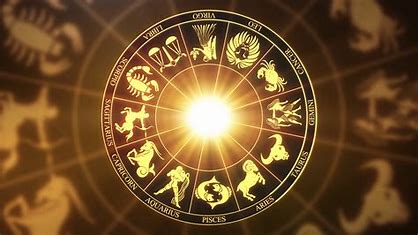Introduction: A New Era for Astrology Predictions
Astrology has always been a tool for predicting future trends — from personal growth cycles to broader societal movements. Traditionally, these predictions are crafted by skilled astrologers who synthesize planetary movements with intuitive interpretation.
Today, with the rise of Artificial Intelligence (AI), a fascinating question arises:
Can AI predict astrology trends more accurately than humans?
AI’s power lies in pattern recognition, data analysis, and real-time processing — capabilities that align perfectly with the complex, data-heavy world of astrology.
But can it truly capture the art and intuition that astrology demands?
Let’s dive deep into this emerging frontier.
1. Understanding Astrology Predictions: Human Approach vs. AI Approach
a) How Human Astrologers Predict Trends
Human astrologers rely on:
- Astrological transits: movements of planets through the zodiac and how they affect natal charts.
- Intuitive synthesis: blending astronomical facts with intuitive insight.
- Experience and cultural context: understanding astrology through spiritual, historical, and cultural lenses.
- Pattern memory: recalling similar past configurations and their results.
b) How AI Predicts Astrology Trends
AI models predict astrology trends by:
- Analyzing massive datasets of planetary positions, transits, and historical outcomes.
- Detecting subtle patterns beyond human recognition.
- Using machine learning to constantly refine and improve prediction models.
- Offering data-backed forecasts devoid of emotional bias.
Thus, while human astrologers bring emotion, culture, and intuition, AI offers objective, data-driven predictions.
2. Strengths of AI in Astrology Trend Prediction
a) Massive Data Processing Power
AI can simultaneously process centuries’ worth of astrological data, recognizing patterns too vast or subtle for the human mind.
Example:
- It can analyze millions of birth charts and historical events, connecting planetary configurations to social, political, and economic changes.
b) Speed and Scalability
While an astrologer may take days to analyze complex planetary cycles, AI can deliver trend analyses almost instantaneously, making astrology more accessible to the masses.
c) Consistency and Objectivity
AI models are free from personal biases, emotional attachments, or cultural preconceptions that might affect a human astrologer’s judgment.
d) Customization at Scale
AI can deliver highly personalized forecasts for millions of users, considering individual birth charts alongside broader astrological trends.
3. Limitations of AI in Astrology Trend Prediction
a) Lack of Intuition
Astrology is not purely mechanical; it’s a dance between science and art. Human astrologers weave nuance, spiritual guidance, and psychological understanding into their forecasts — something AI currently cannot replicate.
b) Data Quality and Interpretation
AI is only as good as the data it’s trained on.
If the training data is limited, biased, or culturally narrow, AI predictions may also be flawed or misleading.
c) Absence of Spiritual Context
AI treats astrological events as cold data points, missing the deeper metaphysical, karmic, and spiritual aspects that many astrologers consider vital.
d) Ethical and Privacy Concerns
Using AI for personalized astrological predictions involves handling sensitive birth data. There’s always a risk of misuse or privacy breaches.
4. Current Real-World Applications: AI in Astrology Predictions
a) Apps and Platforms Using AI for Astrology Trends
- The Pattern: Uses algorithms to generate psychological astrology readings and future predictions.
- Sanctuary App: Offers AI-driven daily horoscopes based on user birth charts.
- Nebula App: Combines AI-generated reports with live astrologer consultations.
These platforms hint at the future: AI-augmented astrology, where machines assist but humans interpret.
b) AI Predictive Models and Global Trends
Some researchers are experimenting with correlating planetary patterns with historical events (like economic crashes or political upheavals) using AI, aiming to create predictive models for future societal shifts.
Example:
- Studies on Saturn-Pluto conjunctions correlating with major historical transformations.
5. Can AI Outperform Human Astrologers?
a) Strength in Data, Weakness in Depth
AI excels at technical analysis, offering broad trend predictions based on planetary cycles.
However, human astrologers excel in interpretation, emotional nuance, and spiritual counseling.
b) The Ideal Future: Collaboration
Instead of seeing AI as a replacement, the future lies in collaboration:
- AI handles calculations, trend analysis, and broad predictions.
- Humans add interpretation, personalization, and spiritual wisdom.
Think of AI as the engine, and human astrologers as the navigators.
6. The Future of AI in Astrology
a) Advanced Predictive Algorithms
We may see AI systems capable of:
- Predicting collective emotional trends.
- Identifying windows for global innovation or conflict based on astrological transits.
- Offering hyper-personalized trend reports in real-time.
b) Emotionally Aware AI?
Future AI systems might integrate emotional intelligence models, adjusting predictions based on psychological states, cultural contexts, or spiritual growth phases.
c) Rise of AstroTech Startups
Expect a boom in AstroTech startups offering AI-driven astrology tools, consultation platforms, and personalized guidance.
Conclusion: AI and Human Astrologers — Better Together
While AI has undoubtedly enhanced astrology’s reach, speed, and technical precision, it cannot fully replace the soulful art of human interpretation.
The best astrology in the future will likely be a beautiful partnership:
- AI provides vast data insights.
- Humans infuse empathy, intuition, and spiritual understanding.
In this collaborative dance between code and cosmos, astrology can reach new heights — empowering individuals to navigate the future with both wisdom and wonder.

Leave a Reply